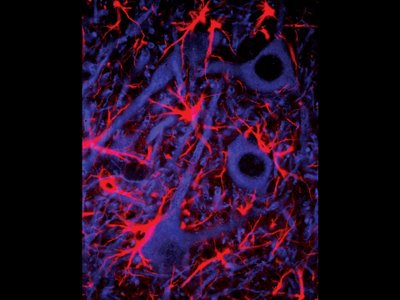Your Brain is not a Computer – Part 2

You might argue that, yes, the brain is not a linear system but functions instead, like the non-linear systems which could then be handled by something like a computerized fuzzy logic system. Perhaps you would be right.
For instance, if I induce a focal lesion, into a region associated with a mnemonic skill, which also ablates the function, regions nearby will become hyper-metabolic in an attempt to redress the ablated function. In other words, the skill can still potentially be recovered, just through a different pathway. The question is can a computer duplicate this accurately? Perhaps it could.
Nonetheless, algorithms for things like differing physiological states must be established. For instance, there will need to be a defined system to express differences in male and female brain physiology, not to mention people who do not fit the heterosexual model of brain activity. I’m sure that gay men and women, as well as transsexuals, will wish to preserve the treasured aspects of their personality. Therefore, fluctuating, reproductive hormone effects will have to be recapitulated. However, I doubt that many would wish to duplicate the deterioration of hormone status due to aging – but still.
Our personalities can also fluctuate around our metabolic states. You will need to reflect the effects of caffeine and glucose. People love their coffee and chocolates. People like nicotine too. Yet computers don’t eat - though they might byte. Sorry, that was really bad.
And what of love, both transitory and long-lasting? Where are the algorithms to reflect these states – these endorphin waves? How will you modulate the pools of serotonin sadness that ultimately make life sweeter to some of us, but worse for others? You realize of course, that many people, including artists and musicians, are inspired through depression.
And what about those dreams that sometimes set our mood for the day? Will you emulate those? How will you program random memories or memories sometimes elicited by a fragrance? If I save a file in a computer it has an exact address but, if during neurosurgery, I touch an address twice with micro-forceps, the memory elicited the first time is not the same one as the second time.
My argument is that there will need to be far more than a duplicated, 3D architecture to even come close to replicating a personality much less the memories that constitute a personality.
For instance, if I induce a focal lesion, into a region associated with a mnemonic skill, which also ablates the function, regions nearby will become hyper-metabolic in an attempt to redress the ablated function. In other words, the skill can still potentially be recovered, just through a different pathway. The question is can a computer duplicate this accurately? Perhaps it could.
Nonetheless, algorithms for things like differing physiological states must be established. For instance, there will need to be a defined system to express differences in male and female brain physiology, not to mention people who do not fit the heterosexual model of brain activity. I’m sure that gay men and women, as well as transsexuals, will wish to preserve the treasured aspects of their personality. Therefore, fluctuating, reproductive hormone effects will have to be recapitulated. However, I doubt that many would wish to duplicate the deterioration of hormone status due to aging – but still.
Our personalities can also fluctuate around our metabolic states. You will need to reflect the effects of caffeine and glucose. People love their coffee and chocolates. People like nicotine too. Yet computers don’t eat - though they might byte. Sorry, that was really bad.
And what of love, both transitory and long-lasting? Where are the algorithms to reflect these states – these endorphin waves? How will you modulate the pools of serotonin sadness that ultimately make life sweeter to some of us, but worse for others? You realize of course, that many people, including artists and musicians, are inspired through depression.
And what about those dreams that sometimes set our mood for the day? Will you emulate those? How will you program random memories or memories sometimes elicited by a fragrance? If I save a file in a computer it has an exact address but, if during neurosurgery, I touch an address twice with micro-forceps, the memory elicited the first time is not the same one as the second time.
My argument is that there will need to be far more than a duplicated, 3D architecture to even come close to replicating a personality much less the memories that constitute a personality.
-Just a peasant
Photo of neurons (blue) and astrocytes (red) in metabolic poses from Cornell


0 Comments:
Post a Comment
<< Home (ホームページ)